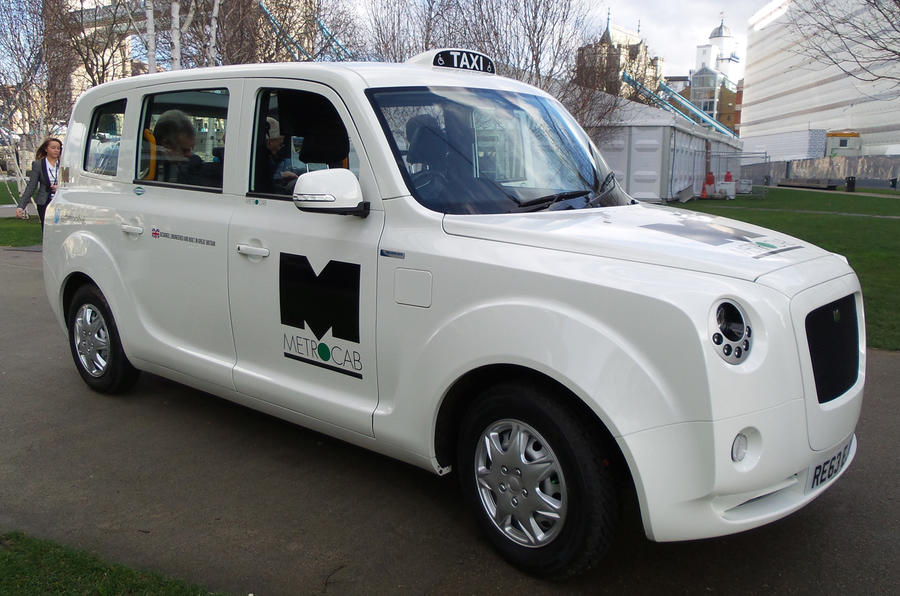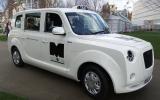Three new low-pollution London black cabs were unveiled in the capital this morning as the mayor of London announced stringent environmental regulations for future licensed taxi designs.
British-based engineering company Frazer-Nash showed the new Metrocab, Turkish-based Karsan revealed an engineering prototype and Chinese-owned London Taxi International announced it would build a new-generation of the classic TX4.
All the proposals are powered by range-extender electric drivetrains. Nissan is also likely to show a pure electric prototype of its new London cab towards the end of this year.
Mayor Boris Johnson said that, from 1 January 2018, all new licensed taxis must be capable of running in ‘zero emissions mode’ on the capital’s most polluted roads.
London has some of the most polluted roads in Europe and it’s estimated that today’s 22,000 diesel black cabs are responsible for as much as 30 per cent of all the particulate pollution.
Transport for London (TfL) bosses said that it wanted the new taxis to be available well before the 2018 deadline. In an attempt to speed the shift from today’s ageing fleet, TfL said it is “working with the Green Investment Bank” to help cabbies trade up to one of the new vehicles.
After the public consultation on the Ultra Low Emission Zone, which ends later this year, TfL will then release the exact engineering requirements for the new vehicles, which is expected to specify CO2 and pollution emissions as well as defining accessibility for wheelchairs and prams.
Of the three designs, the Frazer-Nash cab is the nearest to production. The company is about to release a small number of prototypes to London cabbies for real-world testing.
The Metrocab is driven by two 50kW electric motors and uses a compact 12.2kWh battery and has a generator powered by a 1-litre petrol engine. Frazer-Nash claims that the efficiency of its hybrid drivetrain means that the battery – capable of up to 75 miles range – can be recharged by the generator in 10 minutes using around £1.50 in petrol.
The Karsan engineering prototype will also use a range-extender transmission, but the final package and styling is being currently executed by researchers from London’s Royal College of Art.
Niels van Roij, a senior research associate at the RCA’s Helen Hamlyn Centre for Design, told Autocar that his team was undertaking in-depth research with taxi drivers and all types of taxi users in order to fine-tune the cab’s features, driving environment and styling.
London Taxi International said the new version of its TX4 cab would get a range-extender drivetrain, be capable of getting a five-star EuroNCAP crash rating as well as having a lower kerb weight thanks to a new chassis design.






























Join the debate
Add your comment
Karsan presents the Fiat 500 Taxi!
As for the first one - 75 miles emissions free sounds good but I wonder how many miles a London taxi covers in one day? Perhaps taxi ranks could be equipped with some sort of inductive charging.
story
When it comes to alternative fuelled taxies I always think back to the running joke of the Hydrogen Taxi they tried in 2014 Olympics, every ime it run out of fuel it had to go on the back of a low loader to Swindon to be refuelled then low-loaded back to Swindon for the day.